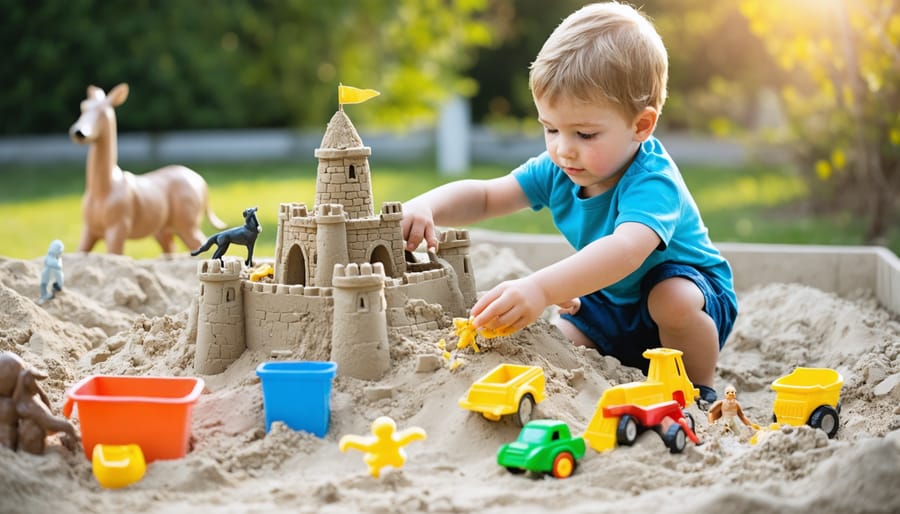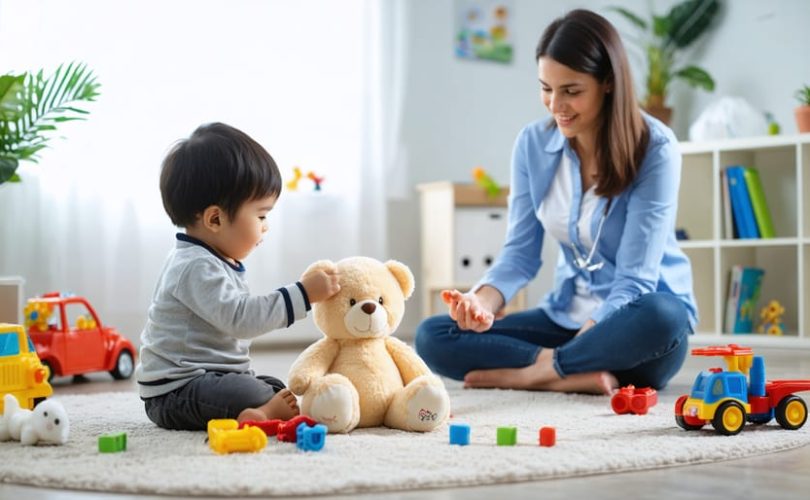Discover the transformative power of play therapy – an innovative mental health treatment that harnesses the natural language of play to help children express emotions, develop coping skills, and heal from trauma. Through carefully selected toys and guided interactions with a trained therapist, play therapy creates a safe, supportive space for kids to process difficult experiences, build resilience, and foster healthy development. As a powerful tool for supporting children’s mental health, play therapy offers hope and healing for young minds facing a wide range of emotional and behavioral challenges.
What is Play Therapy?
Definition and Key Principles
Play therapy is a specialized form of psychotherapy designed to help children express their emotions, thoughts, and experiences through the natural language of play. This therapeutic approach recognizes that play is a child’s primary means of communication and uses it to foster emotional healing and growth. The core principles of play therapy include creating a safe, accepting environment where children can freely explore their feelings, building a trusting relationship between the therapist and child, and empowering children to develop problem-solving skills and coping mechanisms. Through carefully selected play materials and activities, play therapists help children process difficult experiences, develop self-awareness, and enhance their social and emotional skills. The ultimate goal of play therapy is to support children in overcoming challenges, building resilience, and achieving optimal mental health and well-being. By engaging children on their level and using the power of play, this unique therapeutic approach offers a compassionate, effective way to address a wide range of emotional and behavioral concerns.
The Role of the Therapist
In play therapy, the therapist takes on a unique role as a facilitator and observer of the child’s play. Rather than directing the session, the therapist creates a safe, accepting environment where the child can freely express themselves through play. The therapist carefully watches, listens, and responds to the child’s play, helping them process emotions and experiences in a developmentally appropriate way. Through this supportive presence, the therapist builds a trusting relationship with the child, which is essential for therapeutic progress. The therapist may also gently guide the play or ask questions to encourage the child’s self-discovery and problem-solving skills.

How Play Therapy Works
The Power of Play
Play is a vital part of childhood, allowing children to explore, learn, and express themselves. Through play, children develop crucial skills like problem-solving, creativity, and social interaction. Play also serves as a natural outlet for children to process their emotions and experiences. When children face emotional challenges, play can be a powerful therapeutic tool. In play therapy, children use toys, art materials, and imaginative play to communicate their thoughts and feelings in a safe, supportive environment. This allows them to work through difficult experiences, build coping skills, and develop a stronger sense of self. By engaging in play therapy, children can gain a better understanding of their emotions, learn to express themselves effectively, and develop resilience in the face of life’s challenges. The power of play lies in its ability to heal, empower, and foster healthy development in children.
Common Play Therapy Techniques
Play therapists employ various techniques to engage children and help them express themselves. Some common techniques include:
Sandplay therapy: Children create scenes in a sandbox using miniature figures, allowing them to explore their thoughts and feelings in a safe, symbolic way.
Art therapy: Drawing, painting, and sculpting enable children to communicate non-verbally and process their emotions creatively. Read more about how art therapy can brighten your child’s mental well-being.
Storytelling: Therapists use stories, puppets, or role-playing to help children identify with characters and work through challenges.
Games: Board games, card games, and other interactive activities help children develop social skills, problem-solving abilities, and emotional regulation.
These techniques create a nurturing environment where children feel comfortable exploring their inner world. By observing and engaging in play, therapists gain valuable insights into a child’s experiences, helping them develop a tailored treatment plan to support the child’s mental health and well-being.

Who Can Benefit from Play Therapy?
Play therapy can benefit children struggling with a wide range of emotional, behavioral, and mental health challenges. It is particularly effective for children who have experienced traumatic events, such as abuse, neglect, or the loss of a loved one. Play therapy can also help children with anxiety, depression, low self-esteem, and difficulties with social skills or emotional regulation.
Children with behavioral issues, such as aggression, defiance, or impulsivity, can also benefit from play therapy. Through play, therapists can help children develop problem-solving skills, learn to express emotions appropriately, and improve their ability to follow rules and boundaries.
Play therapy is also beneficial for children with developmental disorders, such as autism spectrum disorder or attention deficit hyperactivity disorder (ADHD). By engaging in play activities tailored to their unique needs, these children can improve their communication skills, social interactions, and ability to focus and regulate their behavior. Learn more about play therapy versus therapeutic play for children with specific needs.
Additionally, play therapy can support children going through significant life changes, such as divorce, moving, or adjusting to a new school. By providing a safe, nurturing environment for children to process their feelings and experiences, play therapy can help them develop coping strategies and build resilience in the face of adversity.
Finding a Qualified Play Therapist
When searching for a qualified play therapist for your child, start by looking for professionals with specialized training and credentials in play therapy, such as Registered Play Therapist (RPT) or Registered Play Therapist-Supervisor (RPT-S) certifications. These designations ensure that the therapist has met rigorous standards for education, experience, and supervision in play therapy.
Ask for recommendations from your child’s pediatrician, school counselor, or other trusted healthcare professionals. They may have experience referring families to qualified play therapists in your area. Additionally, you can search online directories provided by professional organizations like the Association for Play Therapy (APT) to find certified play therapists near you.
When selecting a play therapist, consider their experience working with children of similar ages and with comparable challenges to your child’s. Schedule a consultation to discuss your child’s needs, the therapist’s approach, and any questions you may have about the therapy process. This will help you determine if the therapist is a good fit for your family and can provide the support your child needs.
Conclusion
In conclusion, play therapy is a powerful and effective form of therapy that helps children express themselves, process emotions, and develop coping skills in a safe, supportive environment. By utilizing the natural language of play, therapists can connect with children on a deeper level and guide them towards healing and growth. From addressing anxiety and depression to processing trauma and improving social skills, play therapy has a wide range of applications and benefits for children of all ages and backgrounds.
As we’ve explored, play therapy is a unique and valuable treatment option that recognizes the importance of play in a child’s development and well-being. By creating a non-threatening space where children feel heard, understood, and accepted, play therapists can make a profound difference in the lives of the children they work with.
For parents, teachers, and healthcare professionals seeking to support a child’s mental health, play therapy is a compassionate and effective approach worth considering. By embracing the power of play, we can help children navigate life’s challenges, build resilience, and thrive.







